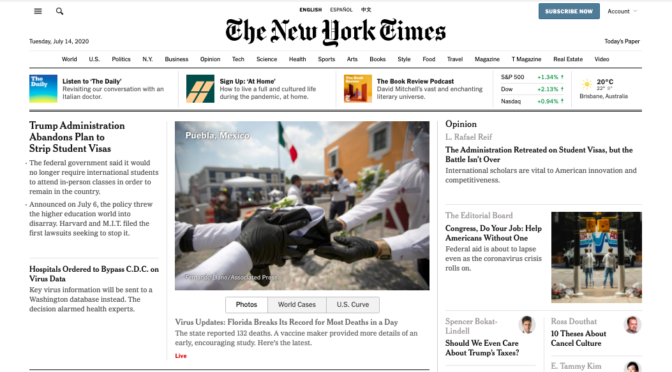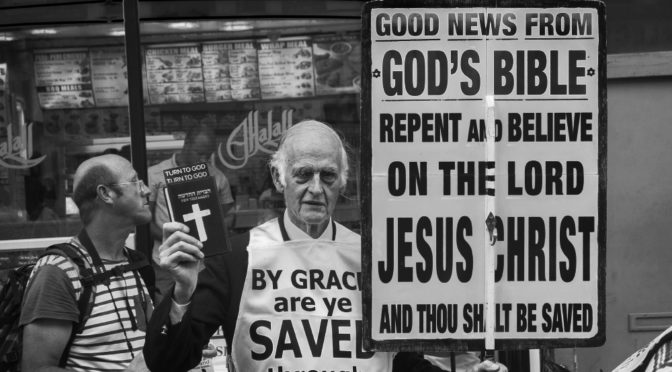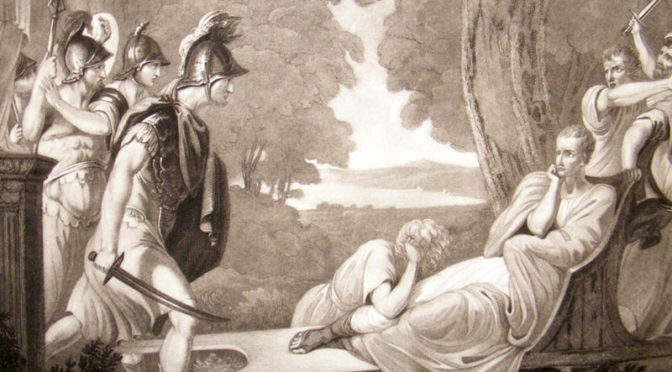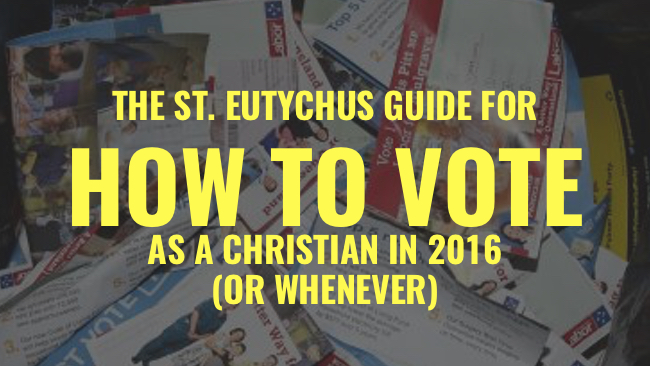Donald Trump has been relentless in his attacks on the ‘fake news media’ — part of his culture war strategy is to white ant the credibility of any institution that might seek to hold his craven, narcissistic, sociopathic pursuit of power and wealth to account. One of his favourite targets is the “failing New York Times.” The Times, as a sort of bastion of New York culture and elitism has always stood in stark opposition to Trump’s kitschy megalomania and Reality TV style boorishness. The paper has been a strident critic of the President, and has been for many years, it both endorsed Hillary Clinton, and thoroughly dis-endorsed Trump, calling him the “worst nominee ever put forward by a major party” (they weren’t wrong). In the wash-up of the election results, trying to understand how they, like most of the nation’s elite establishments, had so failed to predict a Trump win, the Times committed itself to a renewed understanding of its calling as a media institution.
“As we reflect on the momentous result, and the months of reporting and polling that preceded it, we aim to rededicate ourselves to the fundamental mission of Times journalism. That is to report America and the world honestly, without fear or favor, striving always to understand and reflect all political perspectives and life experiences in the stories that we bring to you. It is also to hold power to account, impartially and unflinchingly. You can rely on The New York Times to bring the same fairness, the same level of scrutiny, the same independence to our coverage of the new president and his team.”
Another way of framing this commitment was that the Times committed itself to not being a combatant in the culture wars, but the sort of mediating institution that media institutions are meant to be; institutions and ‘public spaces’ that allow the sort of civil conversation and listening that builds consensus about what is actually true. Functioning societies that aren’t autocracies (governed by a sole authority), or technocracies (governed by experts, science, and data), require an informed populace making decisions from commonly held truths (this is, of course, obvious when you have a pandemic, and a need to communicate and coordinate public health responses, including public behaviour). Trump’s anti-media culture war agenda is dangerous because it can force media agencies to fight fire with fire; it can make ‘truth’ contested. By playing the game Trump wants to play, media companies become wedded to an agenda other than the truth and so open to undermining as ‘the fake news media’ who are perpetuating an elitist view of the world that misunderstands the experience of the common man; and so misunderstands reality. The Times editorial at his election was a hopeful sign that it wasn’t going to be dragged into the mud.
Democracy needs an independent press; a trusted press; a press that operates as a ‘mediating institution’ — not simply one that treats all claims as equal and airs ‘both sides,’ but one that pursues truth, expertise, the public interest, that both speaks truth to power and exposes the truth about power. What we don’t need is media institutions trapped in the culture wars as combatants. That won’t serve anybody. The undermining of trust in the media both because media companies, in order to operate as a force in the market (and to meet its costs, or secure its funding, for eg the ABC) adopt biased positions to sell to a market, and because powerful figures have their own vested interest in undermining institutions that might call them to account, is a pox on all our houses. It’s a particularly vicious cycle when our politicians are poll driven (in order to keep power) and the polling companies are subsidiaries of media companies.
In short, we’re screwed. Our media institutions have become not institutions ‘outside’ the mechanics of power, as a sort of public square, or ‘commons,’ but institutions caught up with wielding power for their own ideological and commercial interests. It’s no coincidence that people like Rupert Murdoch and Jeff Bezos get control of media institutions as they seek to fashion a world in their image of what a world should be.
What doesn’t help mainstream media, like the Times, is when they also become victims to ‘polling’ — to reflecting the voice of the people, rather than operating as a mediating institution that is objectively pursuing the truth. When a media agency becomes an arm of the culture wars, and starts flailing predictably in the direction of some repugnant other, it undermines the ability it might have had to build common ground on issues of truth. The catch, of course, is that with someone like Trump whose only mode is culture wars and self interest, the speaking of truth to power will look and feel a whole lot like ‘culture wars’ to his supporters.
The New York Times is trapped; if Trump is what they say he is, then to say so will be to support his criticisms of them, to become a player in the culture war game, and to lose its institutional cachet, and its trusted position in a democracy. This is true in Australia as our own media institutions get caught up in culture war games.
But it’s worse — despite columns dedicated to public civility from ‘centrist’ (or conservative) figures like David Brooks and Ross Douhat, the Times has failed in its attempts to “reflect all political perspectives,” at least from the perspective of the person they brought in to do that job, who has just publicly announced her resignation because the ‘failing New York Times’ is a flailing, hot, seething mess of resentment internally. In a resignation letter that will surely now sit alongside the open letter from 150 prominent writers condemning cancel culture, Bari Weiss announced her departure from the masthead.
She’s resigning because the Times, ultimately, is inhospitable to those who do not share its orthodoxy. This is religious language being applied to a public institution; it’s a telling category shift. Interestingly, Weiss, who has a long record of opposing anti-semitism, was interviewed after a mass shooting at the synagogue she grew up attending, she said of her Jewish compatriots who had supported Trump and the climate he created, that she saw contributing to rationale of the shooter, “I hope this week that American Jews have woken up to the price of that bargain: They have traded policies that they like for the values that have sustained the Jewish people—and frankly, this country—forever: Welcoming the stranger; dignity for all human beings; equality under the law; respect for dissent; love of truth.” On her reasons for departing the Times, Weiss said:
“I was hired with the goal of bringing in voices that would not otherwise appear in your pages: first-time writers, centrists, conservatives and others who would not naturally think of The Times as their home. The reason for this effort was clear: The paper’s failure to anticipate the outcome of the 2016 election meant that it didn’t have a firm grasp of the country it covers… But the lessons that ought to have followed the election—lessons about the importance of understanding other Americans, the necessity of resisting tribalism, and the centrality of the free exchange of ideas to a democratic society—have not been learned. Instead, a new consensus has emerged in the press, but perhaps especially at this paper: that truth isn’t a process of collective discovery, but an orthodoxy already known to an enlightened few whose job is to inform everyone else… If a person’s ideology is in keeping with the new orthodoxy, they and their work remain unscrutinized. Everyone else lives in fear of the digital thunderdome. Online venom is excused so long as it is directed at the proper targets. ”
She goes on to detail not her cancelation, but her treatment at the hands of colleagues who she says have bought into this particular ideology and so police her orthodoxy, and how inhospitable that becomes.
This stuff is tricky; because in the fallout of the Harpers letter there’s been a fairly public dispute at Vox, where an editor, Matthew Yglesias, was a signatory to the open letter, and a trans writer on staff, Emily VanDerWerff, published an email she’d written to management about how unsafe his signature made her (without calling for his cancellation, but the Internet didn’t read it that way); inhospitality goes in all directions. The argument that free speech is not without cost; especially when it offends or marginalises, is not so easy to dismiss as ‘sticks and stones will break my bones’… What’s noteworthy here is that the treatment Emily VanDerWerff is receiving from strangers on the internet is essentially the same that Weiss says she is receiving from colleagues within her organisation.
Incivility is a terrible thing. And disagreement is complex; we can’t simply create an institution committed to the common good and to canvasing ideas as though we have a blank slate, either historically or emotionally. There must be ideas that are beyond the pale, whose intolerance and exclusivity will drive others away from a platform, Popper’s “paradox of tolerance” has to kick in somewhere (this idea says “if a society is tolerant without limit, its ability to be tolerant is eventually seized or destroyed by the intolerant”). I’ve written before about the analogy of tables, or hospitality, and community; where, for Christians, there’s the Lord’s table (those you break bread with on a Sunday, where theological particularity might matter), your own tables (those you’ll invite around for a meal as host), and tables where we might eat as guests in the commons; media outlets, and the public square, naturally sit as ‘third tables’ (or third spaces), it becomes problematic when media outlets that have a role to play in the commons behave like religious sects. The second and third tables, in order for society to function as something other than a theocracy, have to practice accommodation, hospitality, or some form of pluralism. I’ve also written about how, for Christians, ‘costly speech’ is a better ethical paradigm than ‘free speech,’ these examples of incivility in the public square outside the church are the equal and opposite version of the church seeking to impose its morality on the third table; the third table — mediating institutions that allow the pursuit of common goods and common ground — can’t operate ‘policing orthodoxy,’ instead, it must operate around principles of hospitality and pluralism.
The flailing New York Times has failed to do this because it has become an institution conscripted in the culture wars; a sectarian institution, an institution committed to what the coiner of the culture wars moniker, James Davison Hunter, calls “ressentiment” (the French word for resentment), he says “it also involves a combination of anger, envy, hate, rage, and revenge as the motive of political action. Ressentiment is, then, a form of political psychology… Nowhere does it find a more conducive home than among the disadvantaged or mistreated as directed against the strong, the privileged, or the gifted. But here an important qualification: perception is everything. It is not the weak or aggrieved per se, though it could be, but rather those that perceive themselves as such. Ressentiment is grounded in a narrative of injury or, at least, perceived injury; a strong belief that one has been or is being wronged… The sense of injury is the key. Over time, the perceived injustice becomes central to the person’s and the group’s identity…”
Now, this isn’t to deny that there are those who have been mistreated by the strong, but it does mean that part of the culture war manual is positioning yourself as the victim; which is both the criticism of the signers of the Harper’s letter (that they are claiming victimhood) and the criticism in the Harper’s letter that the process of claiming victimhood is used to silence others. It’s also the heart of Weiss’ criticisms of those in her Jewish community who supported Trump, and her own rationale for leaving the Times. It’s ressentiment all the way down. The antidote to ressentiment is listening and love; it is hospitality.
The flailing Times tried that in appointing Weiss, they failed at it in appointing Weiss, committing to not playing the culture war games, and then becoming increasingly, at least in Weiss’ account, pugnacious crusaders for a particular ideological position.
Hunter says “In this logic, it is only natural that wrongs need to be righted. And so it is, then, that the injury—real or perceived—leads the aggrieved to accuse, blame, vilify, and then seek revenge on those whom they see as responsible. The adversary has to be shown for who they are, exposed for their corruption, and put in their place. Ressentiment, then, is expressed as a discourse of negation; the condemnation and denigration of enemies in the effort to subjugate and dominate those who are culpable.”
I’m sympathetic to the signers of the Harpers open letter and their call for the free expression of ideas, the idea that our ability to collectively know truth, or at least seek it, requires a certain degree of free speech. If their objections are understood as powerful people who contribute to the ongoing marginalisation of the ultimate intersectional oppressed class complaining about the sort of ‘cancelling’ that oppressed peoples have long experienced at the hands of the elite, then the only thing more brazen would be an open letter from the kinds of sectarian church traditions that have sought to impose their moral frame on all of societies tables complaining about cancel culture; the church invented cancel culture (or Israel and other nations of the Ancient Near East, then Rome, did, with the knocking down of idol statues), we just used to call them ‘inquisitions,’ heresy trials, or witch hunts. But some of the signers of the Harper’s letter, like Weiss, are themselves members of oppressed groups; victims even (J.K Rowling, for example, is a feminist and an abuse survivor, Salman Rushdie the subject of a fatwa), Weiss, too, is an outspoken critic of anti-semitism. if we allow the game to be played on these third tables as a sectarian religious, or culture war, where the most intersectionally aggrieved parties dictate the terms about what can and can’t be said, then the flailing New York Times, and other media(ting) institutions will fail; and will fall into the hands of demagogues like Trump (an argument the Harper’s letter makes). Mediating institutions can’t function as mediating institutions if they aren’t operating as ‘third tables,’ or common places; when they ‘mediate’ in a sectarian way they’re acting more like churches pursuing a theocratic end, and executing heretics. This isn’t to say that those who have historically been excluded from platforms, when they were previously enthralled to other ideologies, should not have their grievances heard, or be received with space-giving love, the trick is finding ways to invite such people and groups to not just be guests on the platform (like Weiss’ introducing conservative and centrist voices to the Times), but allowing people of various convictions to function not simply as guests at the table, but hosts.
On the flip side, the church might learn from these stories — not in ways that lead us to operate our own tables differently, but in ways that moderate how we engage in the culture; not as culture warriors who long to wield the power of the cancel button again, but as people not given to ressentiment, but to love and hospitality. The ABC’s Scott Stephens presciently made a point very much like this in a conference I wrote about back in 2015, where he said:
“Could it be that the role of the church (and the public broadcaster?) is not so much to be one ideological warrior among many, but the shepherd/keeper of the moral ecology of the public square itself. The defender of whomever is excluded from the public square itself.”
Maybe not just the public broadcaster, but any organisation with the noble aims expressed by the Times after Trump’s election. Maybe such institutions might aim to be more like a table, and less like a trebuchet with arms flinging destructive projectiles at some repugnant other.







